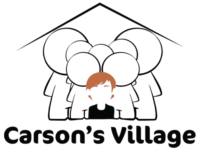Eulogies are a unique way to memorialize a loved one during a funeral, memorial, or graveside service. The eulogy offers a way to say farewell to the deceased and an opportunity to reminisce and share memories with other survivors. It is often the last impression that loved ones are left with as the funeral service comes to an end.
Each eulogy is as unique as the person being remembered. There isn’t a right or wrong way to eulogize, but there are a few key elements to remember while writing and delivering the tribute.
- Consider your audience (are they family, friends, co-workers)
- What do people most want to hear and remember about the deceased? (Be honest, be selective when choosing memories to share, try to be uplifting)
- Is there a story that captures the essence of the person you are eulogizing? If you can imagine an incident as a snapshot of the person’s life then you can expand out from that picture. Use the snapshot as a metaphor. For example, My father wore ties with little flowers on them….so you may talk about your father’s gentle manner, or his love of nature, or what brought him joy. Another example: My mother loved to bake….you could write about your mother taking care of people, nurturing them, comforting them, etc.
- Try to keep the eulogy short and sweet (the often sad circumstances of attending a funeral might make it difficult for attendees to sit too long and listen to one person talking). Leave time for other people to have the opportunity to share.
- Speak to other family and friends if you need additional stories and remembrances (this is often what clergy members do prior to a service, especially if they didn’t know the deceased very well). This gives others the opportunity to share when they might otherwise be uncomfortable being put on the spot during the actual service.
- Plan for the eulogy by looking through old photos, emails, letters, etc. Consider your audience. Think about how the deceased might like to be remembered. What made them happy? What are the significant moments in the life story of the deceased?
Also, the most important thing to remember is that you need to write the eulogy with the family and loved ones in mind. Focus on the positive, be gentle, be appropriate. Don’t plan on reading the eulogy word for word—instead, start with basic information about the deceased and work your way into a narrative of hobbies, interests, characteristics, memories—the things that mattered most to the deceased. Use specific examples to describe the deceased. Try to use a conversational tone.
Remember that giving a eulogy is hard. Have a standby friend or family member who can step in and read the eulogy, in case you are not mentally prepared to complete the task on the day of the funeral service. Write out the eulogy, try not to adlib, and have a clear ending. A good eulogy should calm, comfort, heal and allow survivors to reflect and remember the best moments. These memories will carry survivors forward in their grief journey.
